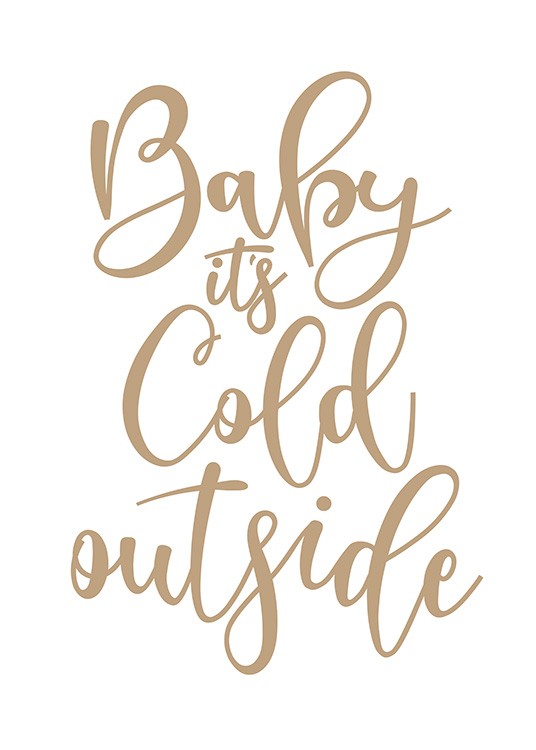
Baby, It’s Cold Outside: A Comprehensive Analysis of a Holiday Classic
Introduction
"Baby, It’s Cold Outside" is an enduring holiday classic that has captivated audiences for generations. Its haunting melody, playful lyrics, and ambiguous undertones have made it a subject of fascination and debate. This article delves into the song’s history, cultural significance, and the myriad interpretations that have shaped its legacy.
Historical Origins
The song was written in 1944 by Frank Loesser, a renowned lyricist and composer. Loesser reportedly penned the lyrics in just 20 minutes while visiting his friend, the actress Nancy Walker. The song was originally intended as a playful duet for Walker and her husband, but it quickly gained popularity and became a holiday staple.
Cultural Impact
"Baby, It’s Cold Outside" has become an integral part of the holiday season. It is frequently played on radio stations, featured in holiday films and television shows, and performed by countless artists. The song’s popularity has also led to numerous parodies and adaptations, further cementing its place in popular culture.
Lyrical Ambiguity
The song’s lyrics have been the subject of much debate and interpretation. On the surface, it appears to be a charming and innocent invitation from a man to a woman to stay the night due to the cold weather. However, some critics have argued that the lyrics contain subtle undertones of coercion and sexual assault.
The woman’s repeated refusals to stay, coupled with the man’s persistent attempts to persuade her, have raised concerns about the song’s message. Some argue that it perpetuates the idea that women should not be taken seriously when they say no, while others maintain that the song is simply a reflection of the social norms of the time.
Feminist Perspectives
Feminist critics have been particularly vocal in their critique of "Baby, It’s Cold Outside." They argue that the song reinforces harmful stereotypes about women as passive and vulnerable, and that it condones sexual pressure and harassment.
Some feminists have called for the song to be banned or censored, while others have suggested that it should be used as a teaching tool to raise awareness about the importance of consent and respect in relationships.
Alternative Interpretations
Despite the controversy surrounding its lyrics, "Baby, It’s Cold Outside" has also been interpreted in more positive ways. Some argue that the song is a satire of the traditional gender roles and expectations of the time.
Others see the song as a metaphor for the complexities of courtship and the challenges of navigating sexual boundaries. They argue that the woman’s resistance and the man’s persistence reflect the tension between desire and propriety that is inherent in romantic relationships.
Modern Adaptations
In recent years, there have been several attempts to adapt "Baby, It’s Cold Outside" to address the concerns raised by feminist critics. In 2018, a new version of the song was released by John Legend and Kelly Clarkson, which featured revised lyrics that explicitly emphasized the woman’s consent.
Other adaptations have included changing the gender roles, making the woman the pursuer and the man the one who is hesitant to stay. These adaptations have sparked further debate about the song’s legacy and the need to re-examine its message in the context of modern society.
Conclusion
"Baby, It’s Cold Outside" remains a complex and controversial song that continues to provoke discussion and debate. Its enduring popularity is a testament to its catchy melody and relatable themes, but its ambiguous lyrics have also made it a lightning rod for criticism.
Whether one interprets the song as a harmless holiday ditty or a problematic relic of the past, there is no denying its cultural significance. It is a song that has sparked countless conversations about consent, gender roles, and the complexities of human relationships.
As we continue to grapple with these issues in the 21st century, "Baby, It’s Cold Outside" serves as a reminder of the importance of open dialogue, respect, and the ongoing need to challenge societal norms that perpetuate harmful stereotypes.
